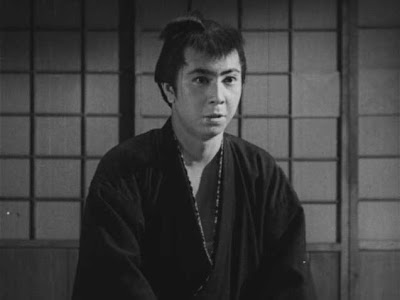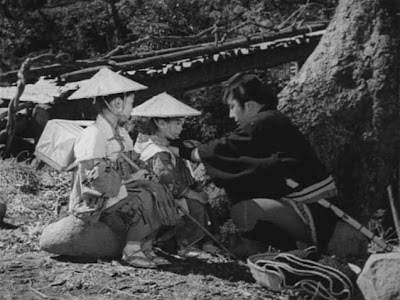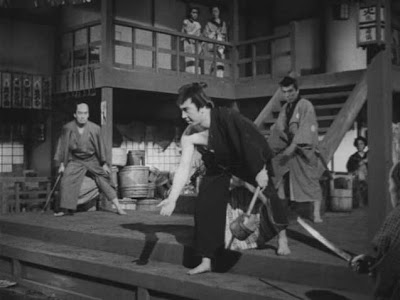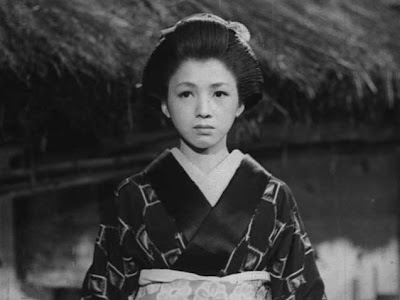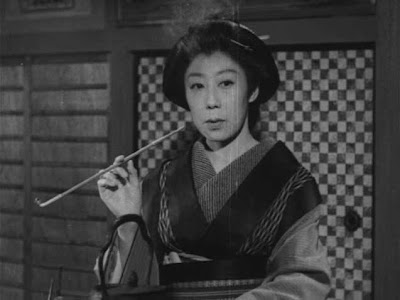Chutaro of Banba
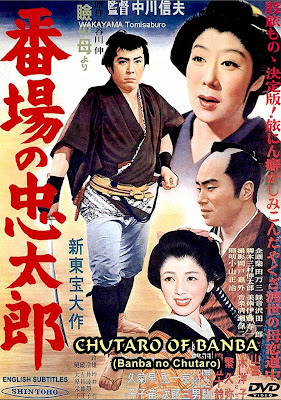
Director: Nobuo Nakagawa
Year: 1955
Rating: 7.0
I suppose
in most ways this is a standard period tale of a Wandering Yakuza Swordsman
who has so much blood on his hands that he can never settle down, never return
to a normal life. There is always someone out there looking for revenge for
those he has killed - a family member, a friend, a member of the clan. This
is such a common theme in Japanese films that I wonder where it originated.
From their literature, legends or was it influenced by our Westerns which
had similar themes? It makes for great cinema though - the Lone Man taking
on the world and never in the same place for long - thus allowing the films
to take in a lot of Japan. They become walking pictorials of rural Japan
where the films had to be shot. It was of course the complete opposite of
what was then contemporary Japanese society which had become based on stability,
Salarymen and staying in the same company for their career. I am curious
as to whether this theme was based on any historical reality or was a complete
romantic fabrication of filmmakers and writers. Not that these Lone Wolfs
were slicing and dicing large groups of men who were usually polite enough
to stand back and attack him one at a time but that there were these wandering
Yakuza's or Ronin's?
